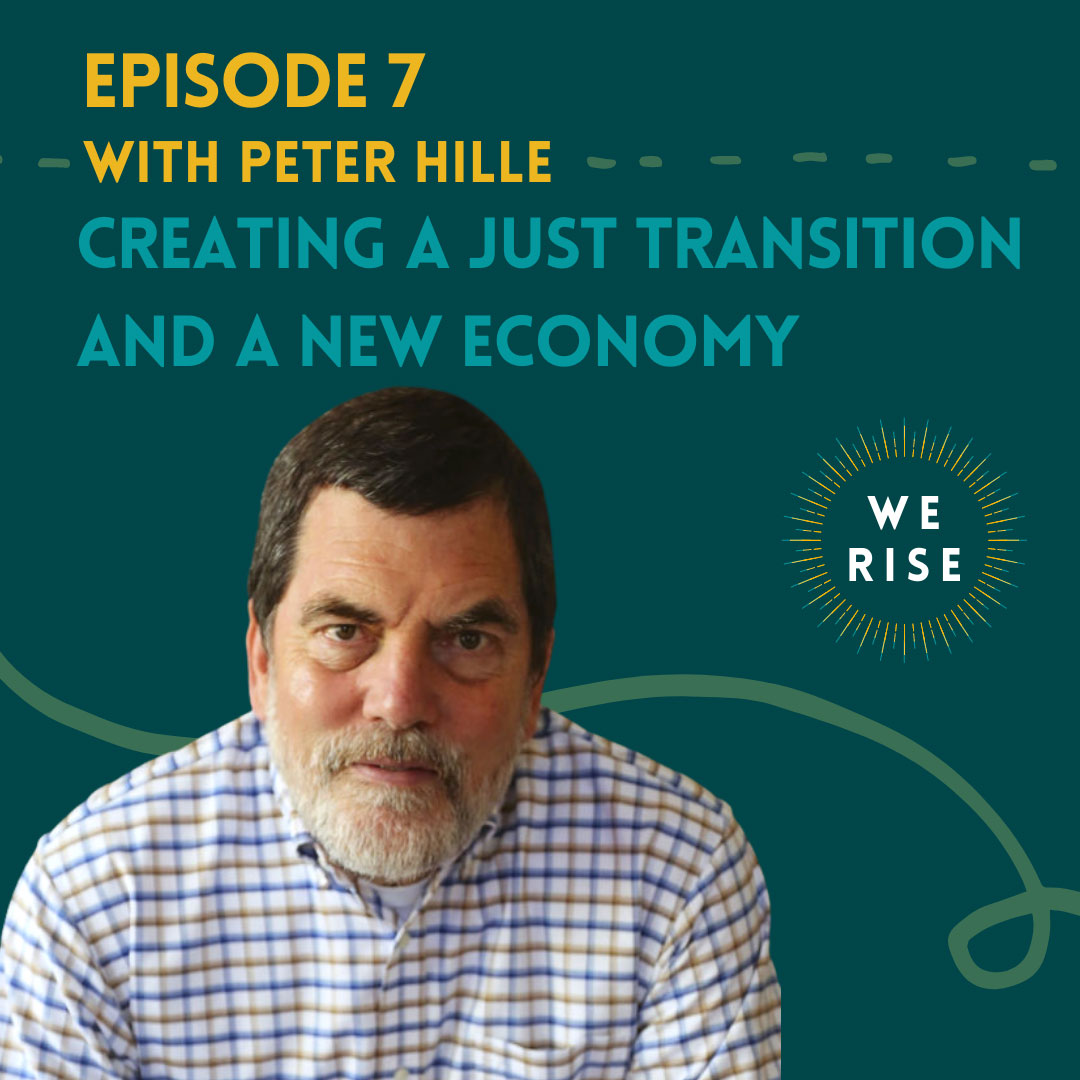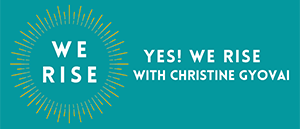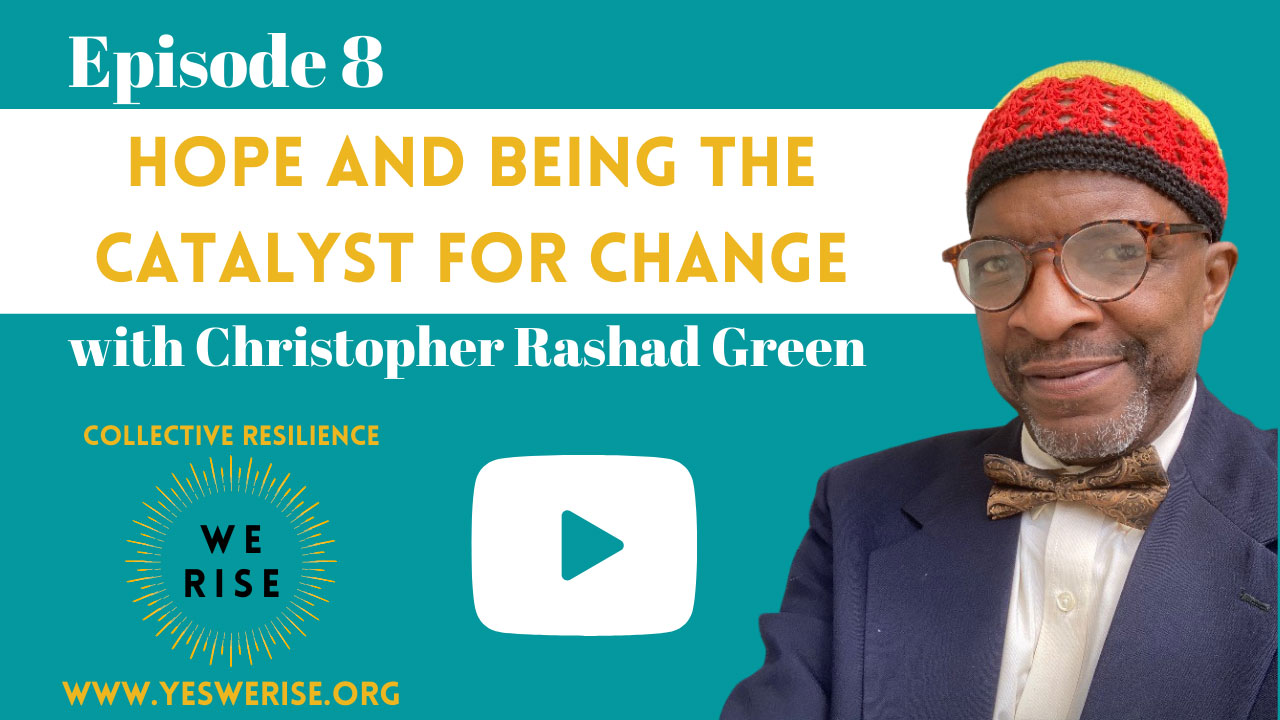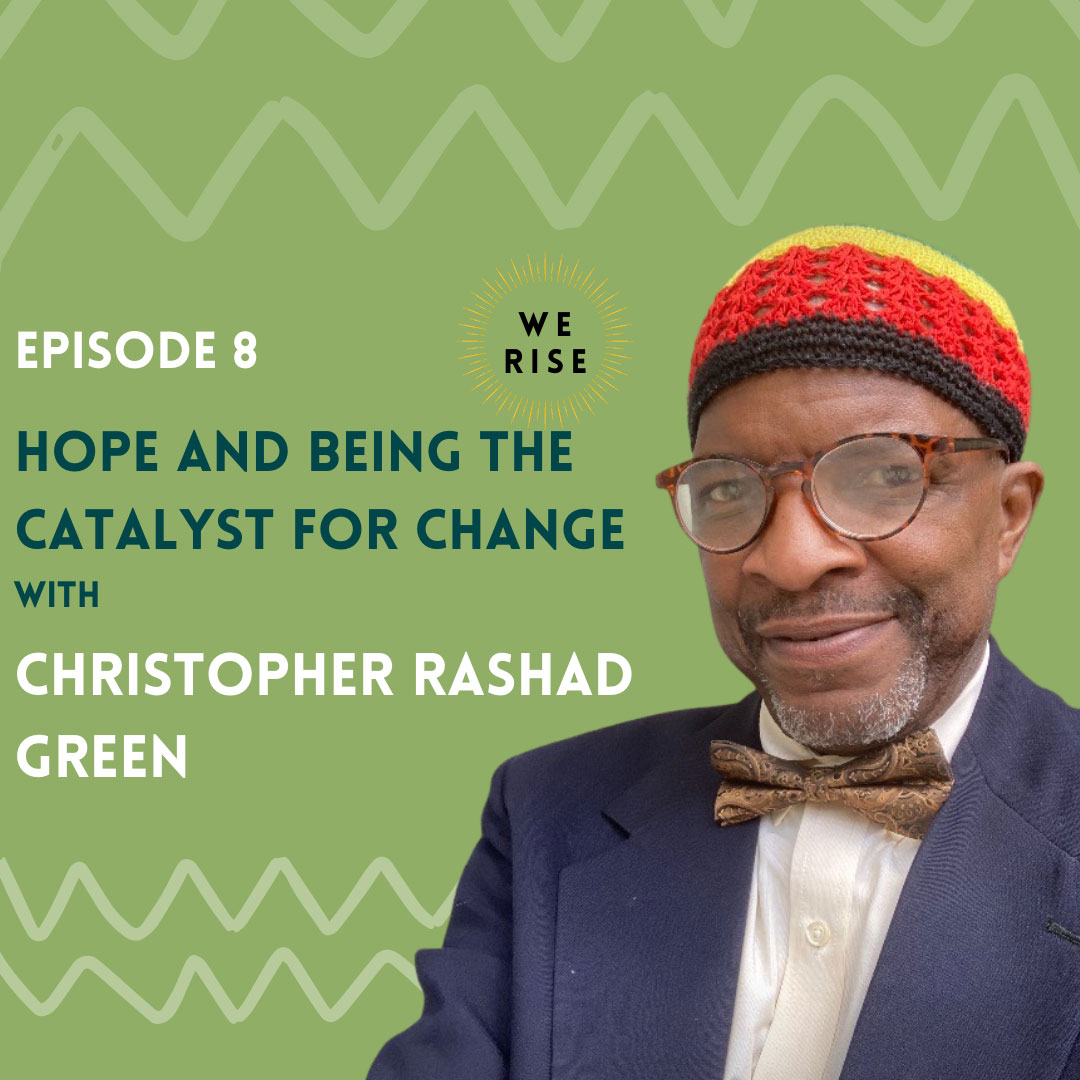
Episode 8:
Hope and Being the Catalyst for Change with Christopher Rashad Green
Episode 8 Description
In Episode 8 of the We Rise Podcast, Christine connects with Christopher Rashad Green for a deeply inspiring conversation fueled by resilience, empowerment, and a story of transformation and connection. Christopher spent sixteen years incarcerated. Since his release in August of 2013, he has transformed his life as a motivational speaker, mentor, and advocate for change in the community of Virginia. He shares the power of keeping hope alive in cultivating change, the importance of healing from past trauma, and the role of trust, empathy, and passion as a catalyst for change.
Christopher is the founder of Free*Dome Unlimited and an organizer for New Virginia Majority where he leads the Court Watch of Central Virginia. He works in the Richmond region and also works as Community Organizer at the Legal Aid Justice Center of Virginia in Petersburg. His work addresses systemic issues affecting families and community members, from incarceration to youth justice.
Download the show Notes
find us on youtube
Key takeaways
Keeping hope alive
Christopher’s mother taught him to always keep hope alive. As one of four children, he observed his mother overcome immense hardship, while learning about his ancestors’ perseverance and strength in the midst of unimaginable hardships.
So how do you keep hope alive when you’re facing trauma? Christopher turns to the power of being a light. Sharing your story helps folks see what is possible and creates authentic, meaningful relationships with others. As a community organizer, he also focuses on uplifting the unseen leaders in the community, building them up to share their passion and their stories of resilience. When these stories are shared, it’s important to have empathy; the ability to feel what another person is feeling.
There is an important distinction between sympathy and empathy. Sympathy is a mental understanding of what someone is experiencing. Empathy is about feeling and relating personally to what another person is experiencing.
Christopher references the insights of Bryan Stevenson, author of Just Mercy, and his four key components to leading as a community organizer:
- Being proximate: being close to the individual and close to the issues they are facing.
- Being hopeful: hope inspires you to stand up and act when you’re told to do the opposite.
- Changing the narrative: both individually and societally.
- Doing the uncomfortable: being willing to challenge yourself to step into uncomfortable and difficult situations to create real change.
After being released from incarceration in 2013, Christopher fought hard for criminal justice reform, and in 2016 his voting rights were restored, allowing him to cast a vote for the first time in thirty years. This pivotal moment became a launching pad as he began fighting for the restoration of voting rights for others.
Christopher, along with other community members, launched an initiative, Court Watch of Central Virginia, with a mission of addressing issues around bail, pretrial services, and transparency and equity in courts. This evolved into a campaign for the right to vote for all.
Throughout the COVID-19 pandemic, the Court Watch program kept hope alive, mobilizing and advocating. Their efforts found victory, and now everyone has the opportunity to register to vote, including individuals on probation and parole.
Working as a collective to create change
To create change, it is important to connect with people from the very beginning. There are many “points of entry” as Christopher calls them.
Cultivating change requires a posture of engagement and unity, where political leaders, local leaders, and community leaders come together and find common ground. It means transparency and accountability, from the individual level to the systematic level. Change also means taking control of your community’s future instead of waiting for someone else to do it.
Reflecting on his own journey, Christopher is able to see how far he has come and how much he has accomplished. He knows there is more work to be done, but is inspired to continue moving forward as he sees others step up and take active roles in the community.
Christopher also realized that he didn’t have a healthy role model or mentor in his life, and now sees the importance of providing that to others.
His nonprofit organization, Free*Dome Unlimited, has launched a new program that offers mentorship to bring generations together in the pursuit of change. Helping to build up youth and inspire them is important in breaking societal cycles and motivating younger generations to take charge of their future and their community’s future.
Christopher sees success as motivating others to take charge and initiate, so that even when he is not present, the community continues to fight and actively participate.
Healing from trauma and finding your voice
Christopher spent sixteen years in incarceration, at different points in his life from the age of 15. As he learned the role that the trauma of these years played into his adulthood, he began to find freedom. Learning about trauma-informed care and watching Resilience, a documentary on the impact of trauma on the body, Christopher gained a new understanding of the root causes of his behaviors and thoughts.
On his healing journey from substance abuse and addiction, he developed the resiliency to combat old narratives and urges. He frequently reminds himself of his lowest points and uses that as conviction to continue pursuing the important work he is doing. Making the choice to trust himself led to his ability to trust others, develop friendships, and create a community.
Overcoming his own internal monsters has enabled Christopher to advocate and support others in fighting theirs. He shares an example of a young man, home for thirty days after four years of incarceration. Passing along his experience and wisdom, Christopher encouraged him to stay focused on his plan, be open to learning and growing, and most importantly remind him that he has a voice and it matters.
notable quote from Christopher
“One of the greatest lessons I’ve learned is having trust… consistency, and trustworthiness. Those were two things that were vital in my open development, being consistent, being able to show up no matter what it is, and being trusting… I had to learn to trust myself and trust in others.”
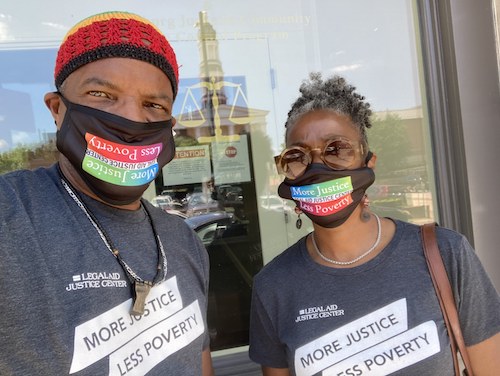
Links/resources mentioned
Learn more about Christopher Rashad Green, founder of Free*Dome Unlimited and employee at the Legal Aid Justice Center of Virginia
Learn more about New Virginia Majority and the Court Watch of Central Virginia
Learn more about Bryan Stevenson, author of Just Mercy. Learn more about trauma in the body through the documentary: Resilience
The Yes! We Rise podcast is produced by Dialogue + Design Associates, Podcasting For Creatives, with music by Drishti Beats.
Please rate, review, and subscribe to the podcast so we can continue spreading our message far and wide. Find our email list at the website: www.yeswerise.org.
Thanks for listening.
Follow Yes! We Rise on Facebook and Instagram.
Don’t miss an episode — follow us on Spotify and subscribe via Apple Podcasts, Stitcher, or Google Play, and please leave us a review wherever you listen.
Jump to:
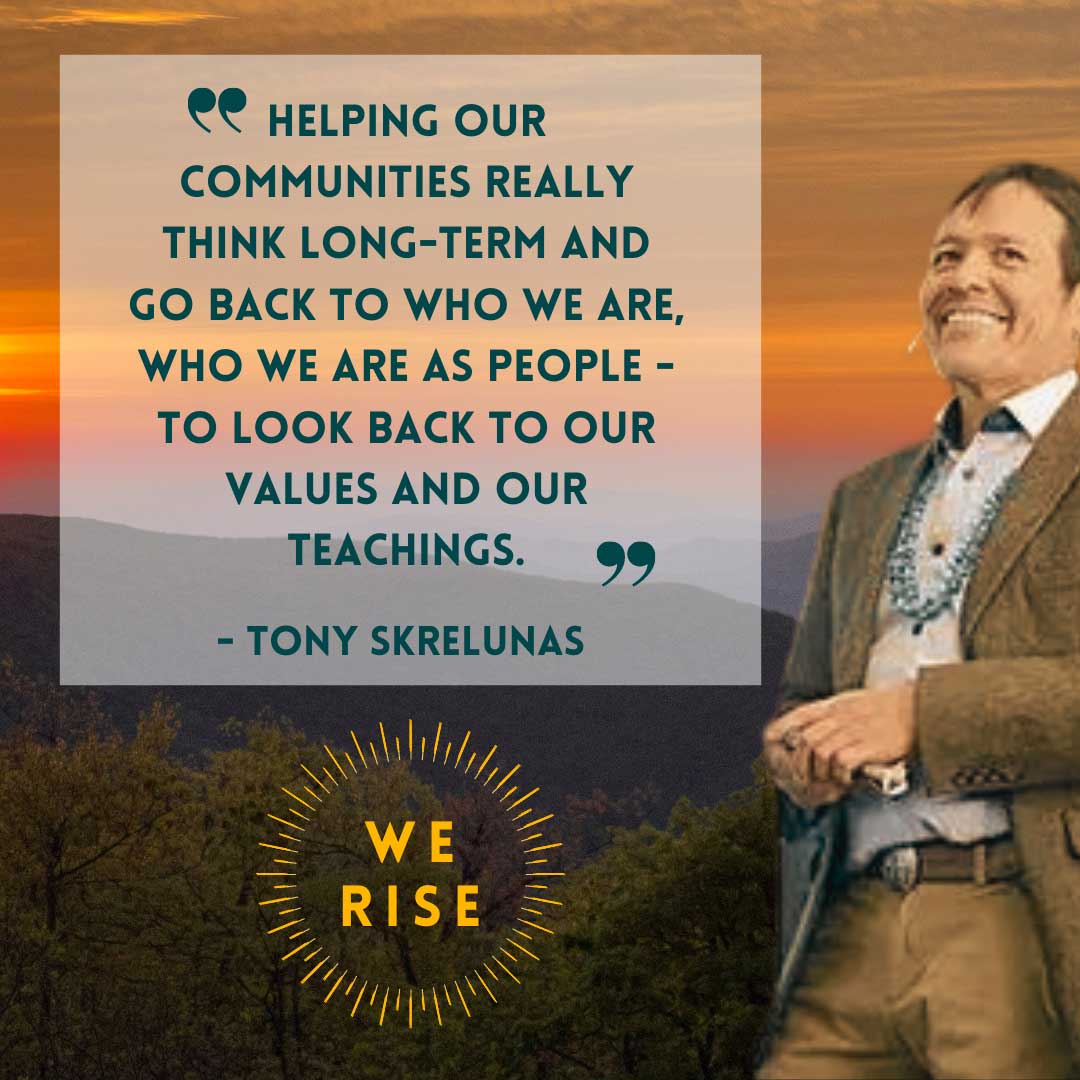
Episode 2
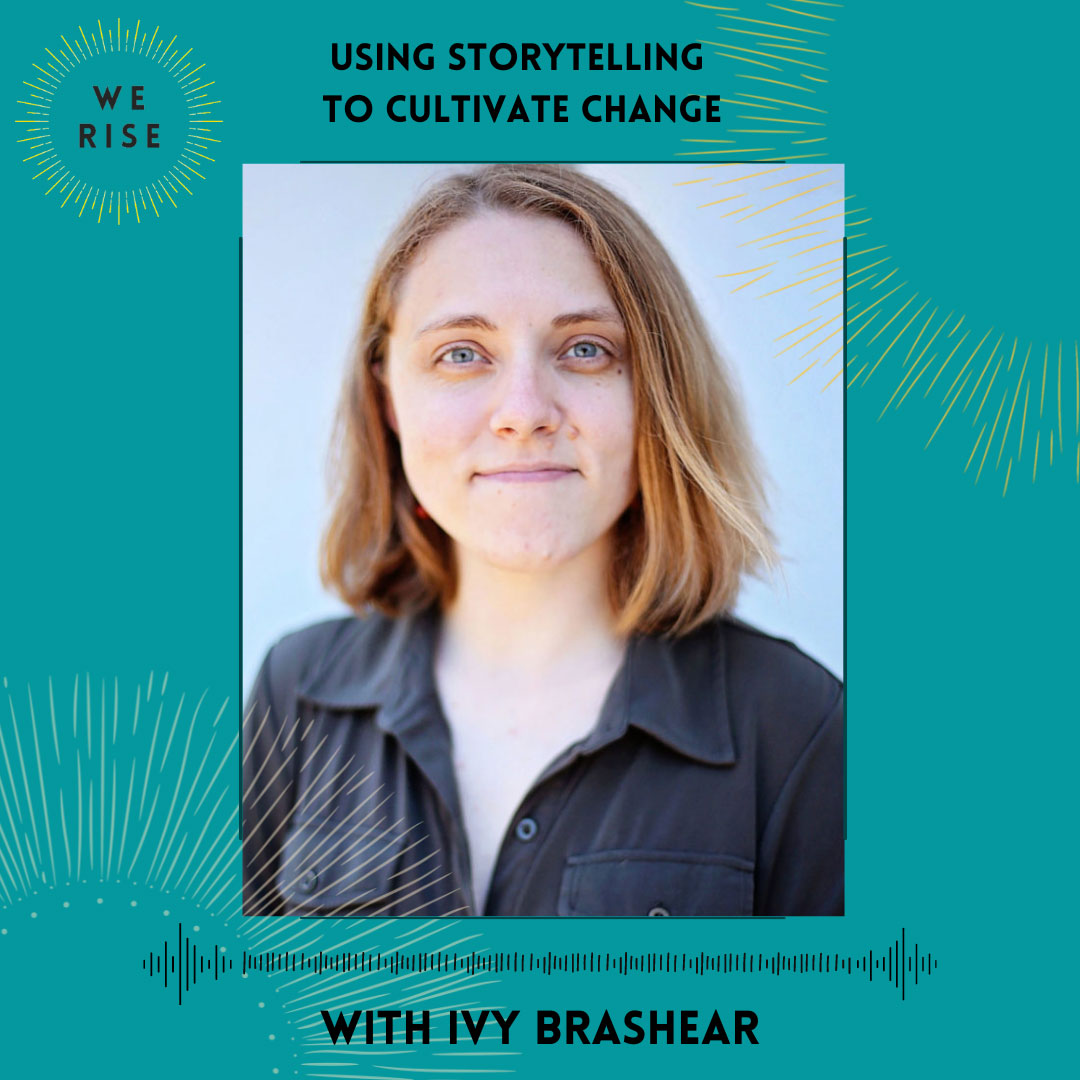
Episode 3
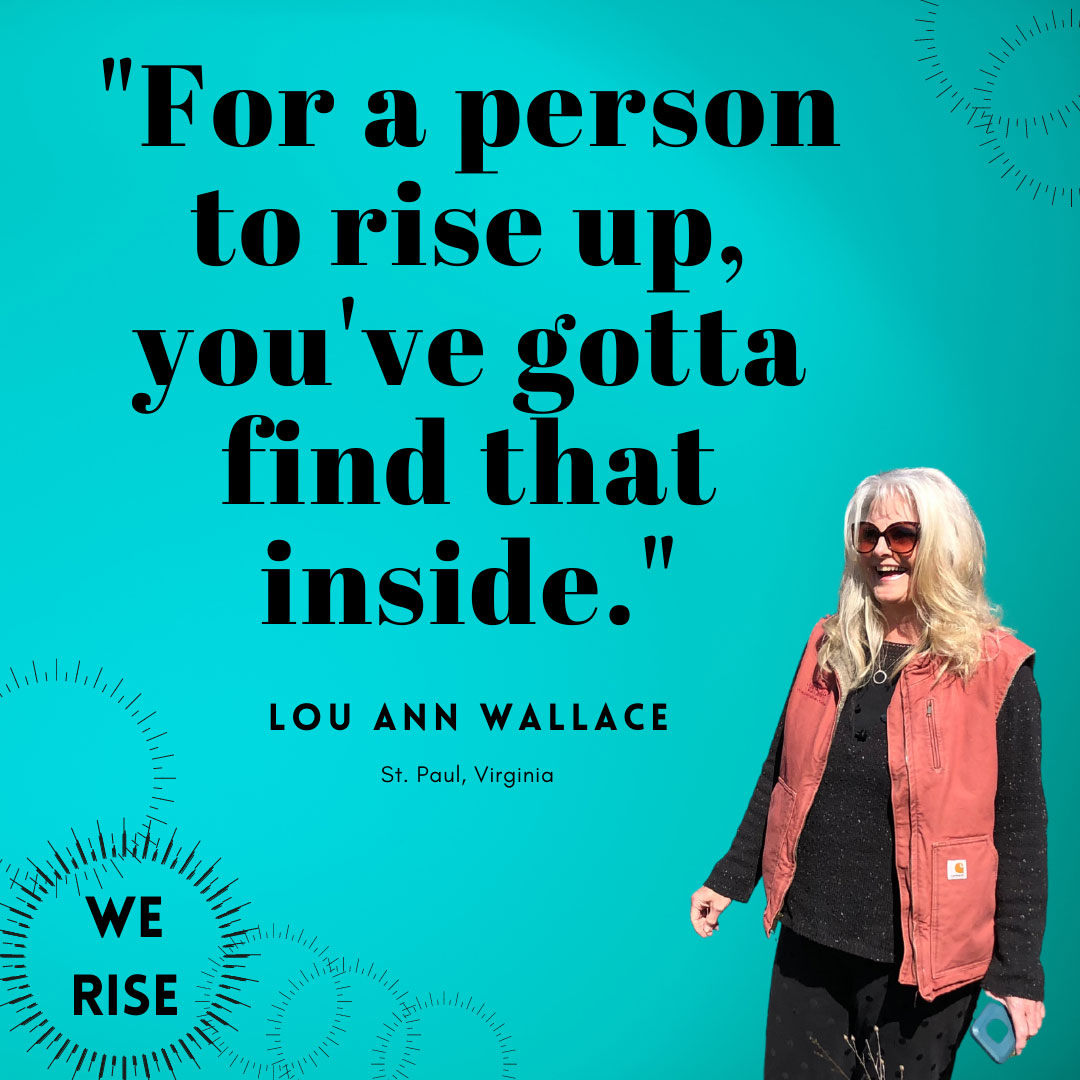
Episode 4
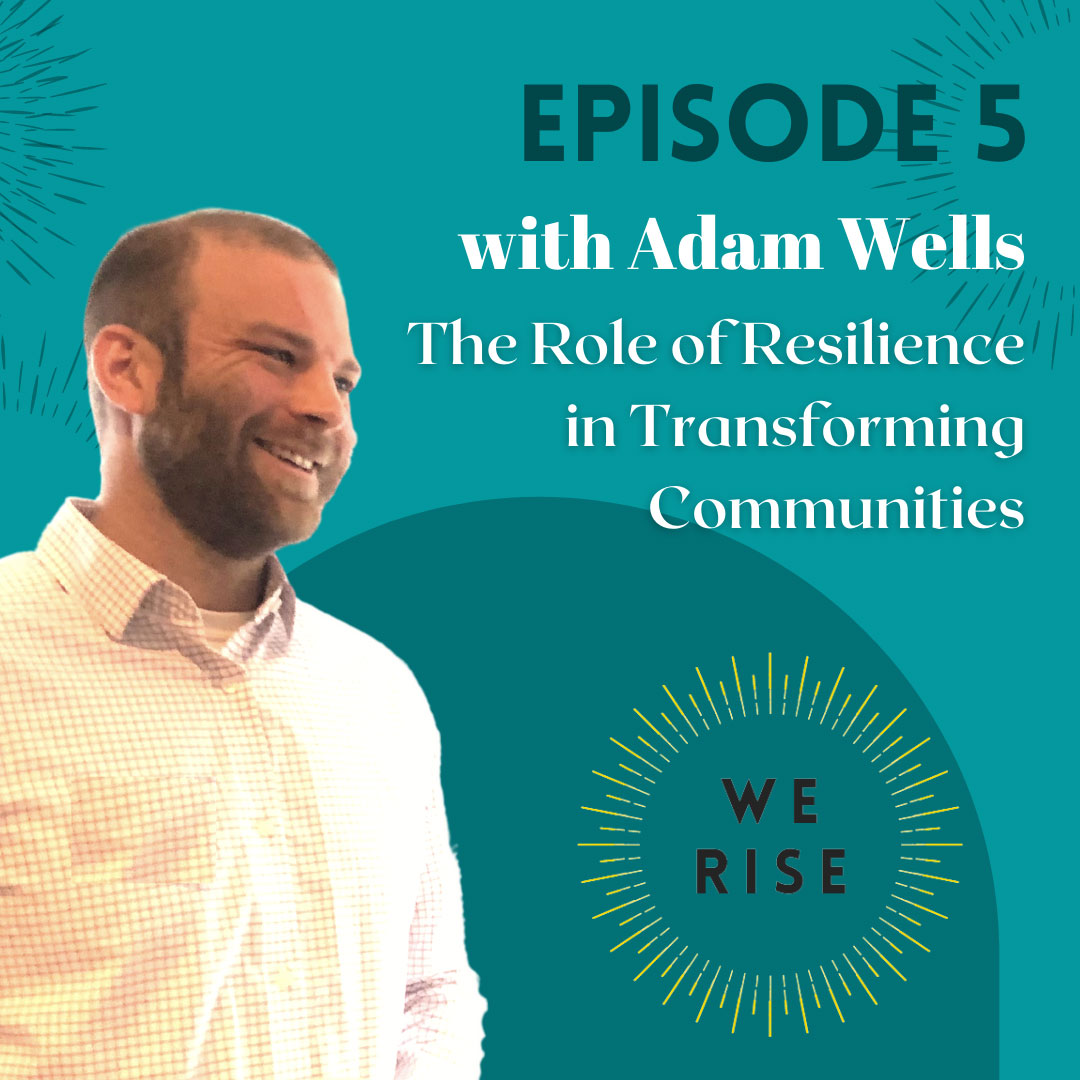
Episode 5
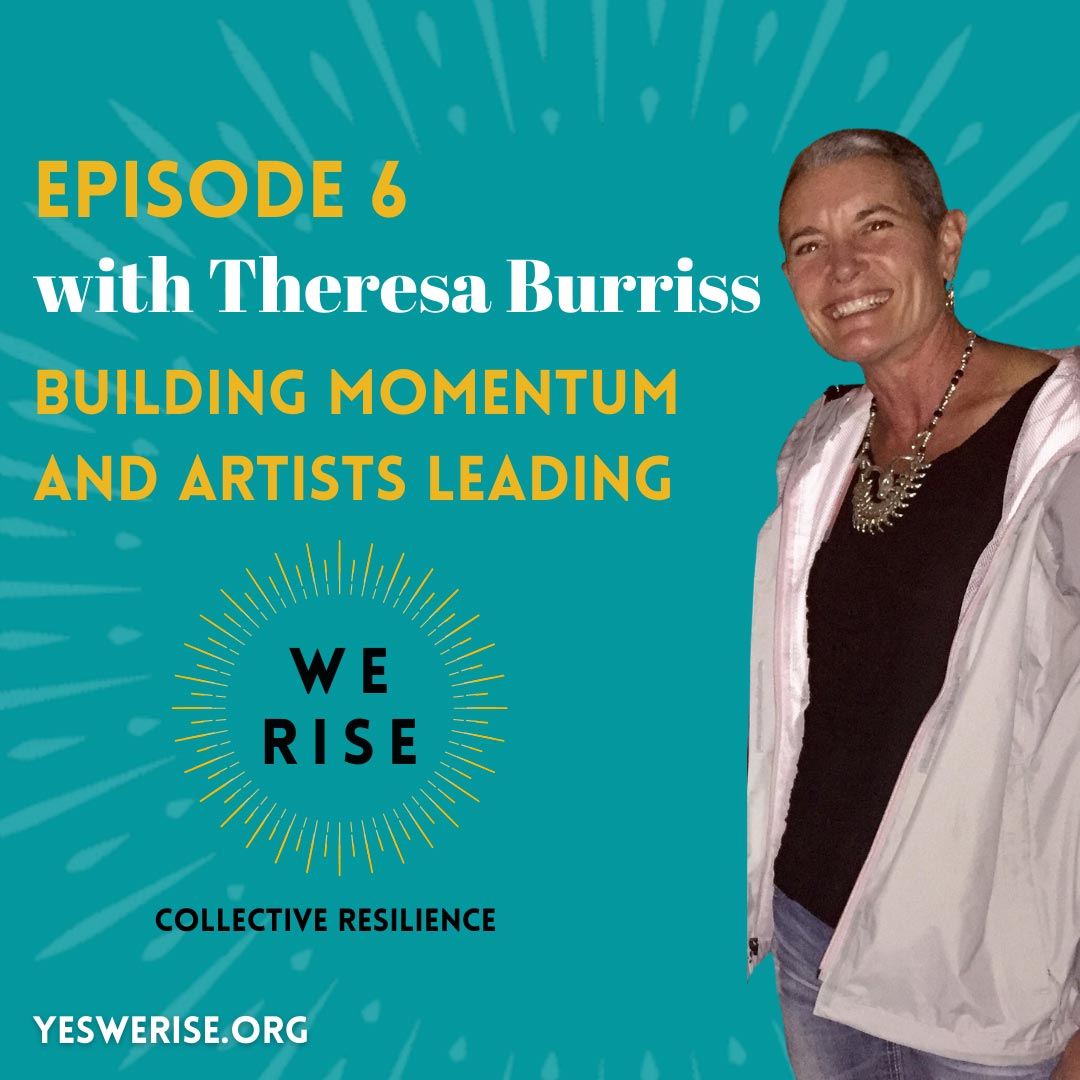
Episode 6
